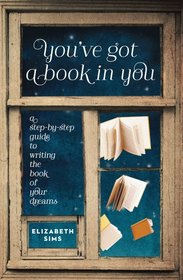Search -
You've Got a Book in You: The Step-by-Step Guide to Writing the Book of Your Dreams
You've Got a Book in You The StepbyStep Guide to Writing the Book of Your Dreams
Author:
Geared toward all ages, experience levels, and genres. The quintessential writer's guide, this book has something of value regardless of the reader's experience level or genre interest. With "writing blasts" (aka prompts/exercises), brainstorming, organizing, and writing small pieces at a time, writers will accrue the story patches they'll sew i... more »
Author:
Geared toward all ages, experience levels, and genres. The quintessential writer's guide, this book has something of value regardless of the reader's experience level or genre interest. With "writing blasts" (aka prompts/exercises), brainstorming, organizing, and writing small pieces at a time, writers will accrue the story patches they'll sew i... more »
ISBN-13: 9781599635545
ISBN-10: 1599635542
Publication Date: 5/13/2013
Pages: 240
Rating: ?
ISBN-10: 1599635542
Publication Date: 5/13/2013
Pages: 240
Rating: ?
0 stars, based on 0 rating
Publisher: Writer's Digest Books
Book Type: Paperback
Members Wishing: 1
Reviews: Amazon | Write a Review
Book Type: Paperback
Members Wishing: 1
Reviews: Amazon | Write a Review
Genres:
- Reference >> Publishing & Books >> Authorship
- Reference >> Writing >> Fiction




